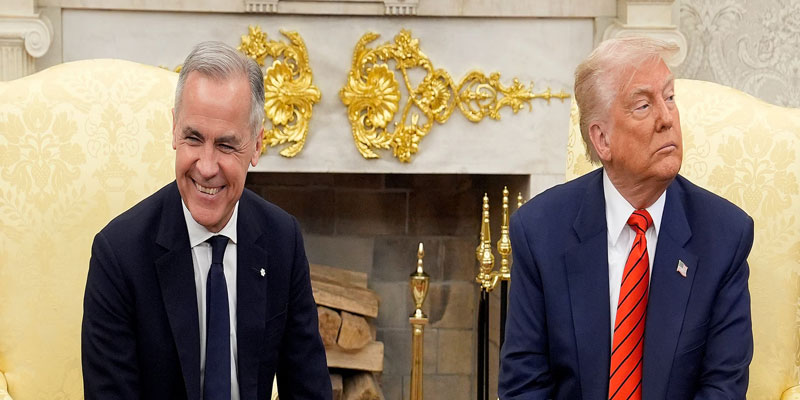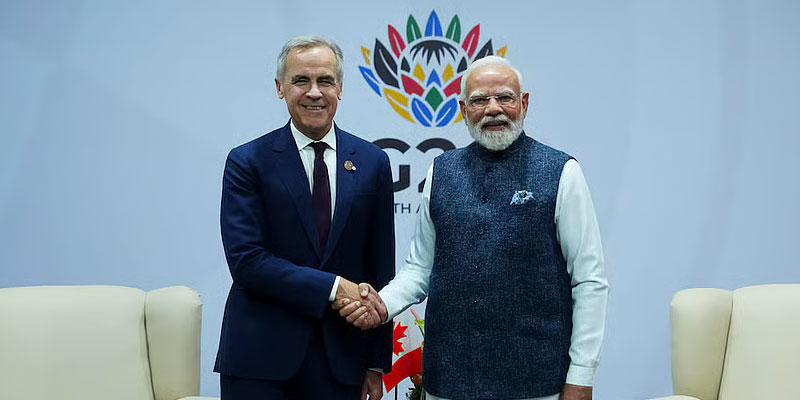A Strategic Pause Before the Storm
In a surprise Sunday night reversal, Canada announced it would suspend its planned digital services tax on U.S. tech giants just hours before it was due to take effect. The move, aimed at salvaging high-stakes trade negotiations with the United States, comes amid renewed dialogue between Canadian Prime Minister Mark Carney and U.S. President Donald Trump.
With both sides hoping to clinch a trade deal by July 21, Canada’s Finance Ministry confirmed that the tax rollback was made “in anticipation” of constructive negotiations. The decision reflects Ottawa’s willingness to compromise in the face of escalating threats from Washington, including the imposition of new tariffs.
From 'Elbows Up' to Elbows Down?
Canada’s retreat from its digital tax initiative has reignited debate across the country, with many critics accusing the Carney government of caving under pressure. The phrase “elbows up,” once a proud national slogan denoting resilience against U.S. economic bullying, has become a target of irony and ridicule.
Originally a hockey term used to signify standing firm and protecting oneself, “elbows up” became a rallying cry during trade tensions with Trump’s administration. It gained mainstream popularity after Canadian comedian Mike Myers popularized it on Saturday Night Live, and Carney himself adopted it in multiple speeches. The phrase appeared on placards, T-shirts, and political messaging across Canada.
Now, the government’s reversal has been labeled “elbows down” by critics on social media, with memes and sarcastic commentary flooding platforms. Conservative MP Garnett Genuis mocked the government as performing a “chicken-dance,” going “elbows up, elbows back down” in repeated cycles of defiance and retreat.
Trade Talks Back in Motion
The diplomatic pivot may be controversial at home, but it has served its immediate purpose: getting trade talks back on track. Prime Minister Carney confirmed that he and Trump had spoken on Sunday and agreed to resume stalled negotiations, originally derailed by Trump’s strong opposition to the digital tax.
Trump had described Canada’s tax as a “direct and blatant attack” on the United States and threatened retaliatory tariffs on Canadian goods, including steel and aluminum, where duties could rise to 50%.
Carney’s office issued a statement shortly after the tax was rescinded, reaffirming that negotiations would aim for a resolution by the July 21 deadline, set during the recent G7 Leaders’ Summit in Kananaskis. Stock index futures rose on the announcement, and market optimism spilled into Asian trading, reflecting broader confidence in the de-escalation.
What’s at Stake?
The trade relationship between Canada and the United States remains vital for both economies. Canada is the largest buyer of U.S. exports, purchasing over $349 billion worth of American goods in 2024, while exporting $412.7 billion in return. Any sustained disruption could rattle industries on both sides of the border.
Moreover, the now-halted digital services tax had already become a point of contention. The Biden administration previously requested formal trade dispute consultations, arguing the measure violated obligations under the USMCA trade agreement.
Pragmatism Over Posturing
While critics decry the government’s move as a sign of weakness, the decision to pause the digital tax may reflect pragmatism over political posturing. With economic stakes high and U.S. retaliation looming, Canada has chosen to protect its broader trade interests—even at the cost of its symbolic slogans.
The coming weeks will determine whether this compromise leads to a balanced agreement, or whether “elbows up” will need to be redefined for a new era of diplomacy.
(With agency inputs)






















